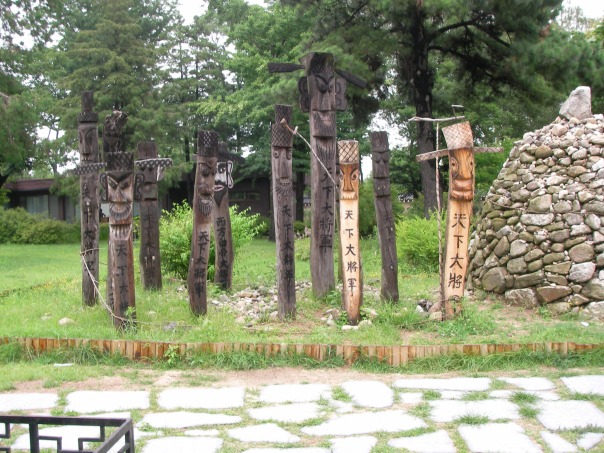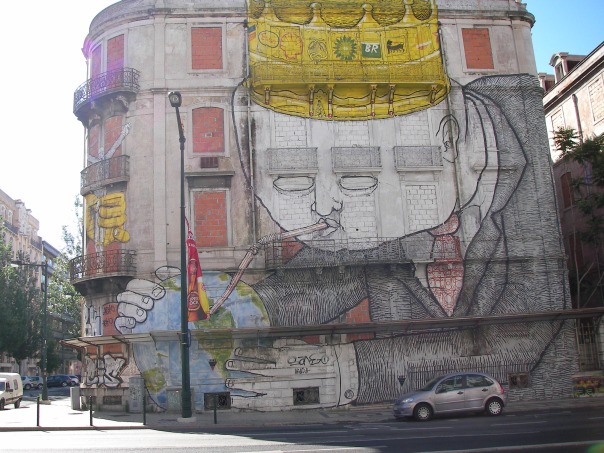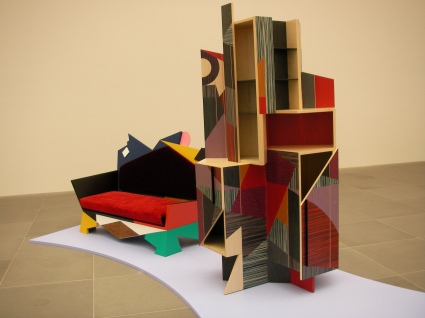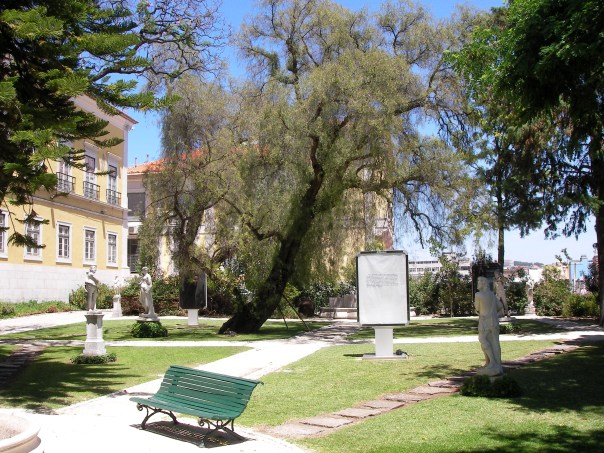Category Archives: The 90-day novel
My favourite things
After all the hours of browsing and reading, patterns start to emerge.

And here is summary, as of today, the last of February, in the year 2013.
Before I fell in love with reading and writing on the internet, I was convinced that blogs were not for serious people. They were populated by young girls writing about popular things, like fashion and celebrities. I also learned that these bloggers, as they were called, make money – or to be more correct, they are given things. They are given things that represent the brands they mention in their blogs. I felt that I was obliged to consider this as non-real work, with non-real incomes.
That was five years ago. And of course I was wrong.
I worked at a telecom company in Sweden, and I started to find interest in things that happen at work. These were things related to people, and it was most interesting to see how the interactions between people, and the intrigues they created, had such a large impact on the actual business.
I stumbled upon Seth Godin’s blog. I realize now that I was not the first person to have done that, and I have been a follower since I found it. I read every post, they are always good, and sometimes they are both very good and spot on, giving me direct inspiration and renewed energy. Of course I highly recommend this blog.
And he has written books, too. I learned many things from Linchpin, and some I remember most vividly since they tend to follow me along, and cling to my mind. One wisdom is that fear is always there, trying to hinder you from doing your work, and it directly activates your lizard brain.
I also learned, again from Linchpin (but as I now understand, it emanates from Steve Jobs), that real artists ship. I try to follow this advice, but I assure you that it is sometimes difficult!
I work in a University (for one more month from today), and I have spent some time thinking about students and learning, and why nobody wants to be an engineer, and why everybody hates math. Then I saw the light. I found Stop Stealing Dreams, which was very refreshing, and I also sent the link to our Minister for Education. No, I did not receive any answer.
I continued searching, and here are some samples from my current favourites. These are blogs I regularly read, and sites I regularly visit.
Someone pointed me to this great talk by Neil Gaiman. It was embedded in a post on an equally great blog called The Story of Telling. You can find many thoughtful words there, often captured in compact and precise formulations, in posts with great imagery.
From time to time I visit the Zenhabits blog, and I always leave with some added wisdom and some interesting thoughts that I can relate to my work life as well as to more private experiences.
I have read many interesting posts at a blog called Bottledworder, and I have found inspiration for books and reading from 101 Books and from The Bookshelf of Emily J.
For the moment I read about how to write, especially on how to write fiction. I know that I cannot learn that craft from only reading, so I also commit to regular practice, and from time to time I emit some non-fiction posts as well.
One of my current book-zapping projects is called Why we write. I find it very interesting, and full credit goes to the magnificent Brainpickings site, from where I got the recommendation.
Earlier attempts to learn more about writing (and reading) include Francine Prose, Alan Watt, NaNoWriMo, and most recently, Stephen King.
I have participated in World-Changing Writing and Tribewriters, which were interesting, however not life-changing.
For the moment I am listening to, and reading material from, a very interesting workshop from Psychotactics. It is actually free (for a limited time period), and I very much recommend it if you are interested in marketing. The workshop is called the Brain Alchemy Masterclass, and it explains (in a super-pedagogical and very entertaining way) why structure in marketing is critical to growing a business effectively. There may be a waiting list and the time period will expire, but here is a link with more information about the Brain Alchemy Masterclass.
I almost forgot. There is this great place called Box of Crayons. I subscribe to their Great Work Provocations, which means that I receive wise words every day, all for free, and all very helpful and encouraging. And I bought this book that helps persons to do More Great Work. And it helped a lot in my thinking and planning for a new job.
And some days ago I also discovered radio, in the form of a great site called On Being. I have downloaded material from there, and it has made my train journeys inspiring in a whole new kind of way.
I conclude with a thanks, to you who read this blog and this post. Even if they say that you should pursue your art and not think about making it for your readers, it is a lot more fun if there is someone on the other end of the line!
How the %&*# can I find my voice?
They say I have to have a voice.
A voice when I am writing, that is. A voice that makes my writing instantly recognizable as mine. But where is this voice? And do I have it? Perhaps I have no voice at all!

I decided to practice. This was when I took my first steps in the preparations for writing a draft for a novel. I had previous experience in writing, that was clear. I had written research papers and even a thesis. So perhaps I had a scientific, tech-voice? If you want a sample of it, it may sound like this:
Fast motion along a predefined path is important in many robot applications, and requires utilization of the maximum allowable torque range. If the torque is at the limit, there is no margin to cope with disturbances or modeling errors, which may result in deviation from the path. A path velocity controller for modification of the velocity along the path when the torques saturate can improve path tracking. The path velocity controller acts as an outer feedback loop outside the ordinary robot controller, and modifies a nominal velocity profile, computed by minimum time optimization using available methods.
But now I should do fiction. What was meant by that? That I could, or perhaps should, make things up? That was sort of unfamiliar, at least if I wanted to gain some experience from my previous writings.
They say that authors blend in their own life in their stories. I had certainly heard of that. And I had also heard of angry relatives suing authors for making too many private things very public. So here one might need to tread softly, to avoid breaking hearts and making people upset. And it would also be important to show some dignity towards people who know me, and still want to know me, even after I have written the book.
I read Alan Watt, and I really liked his suggestions of stream-of-consciousness writing. I started with capturing small scenes from my life, and then trying to reproduce them onto a piece of computer screen. Here is a lunch sample, where a bunch of work-oriented persons eat, in a Scandinavian setting, doing their best to avoid the unspoken taboo of talking about work during lunch time:
They talk during lunch. Sometimes the conversation flows freely, and sometimes long periods of silence occur, broken after a while by some of the group using their creativity to come up with a new subject to talk about. They mostly talk about facts. They do not talk about feelings. No one says “did you read that book, it was truly fantastic, it gave me a complete new picture of the Chinese culture”. Perhaps someone says “did you know that there is a golf player who can reach 300 meters using only his putter”. This may be followed by a comment, like “did he do it in a contest?”, and perhaps a somewhat scientific observation in the style of “can he control his muscles or does he hit that hard all the time?”.
Since I always was a strange cross-breed between science guy and something more artistic (perhaps writing, perhaps rock and roll, perhaps opera – I still do not know), I tried to put some art into the writing. So here is Michael, character-to-be in Prevention – the book that I now prepare, leaving his rehearsal, only to be attacked and hit to the ground some minutes later:
Michael Dalton did not know, then, as he prepared himself for the rehearsals, that he was in for a new period of silence. This time it would not be determined by himself, as a result of a failed audition, but instead by forces outside of his own control. He did not know it when he sang his aria, or during the majestic sextet when he listened to the almost divine beauty of the Dove sono aria, and he did not know it when he said goodbye and see you tomorrow to his fellow actors and singers. Instead he felt happy and full of enthusiasm and life. He did not know, shortly thereafter when he mounted his bicycle for the short ride home, that this was the last rehearsal for him, at least for a long time to come.
He only knew it later in the night, when he woke up, stirred awake by a nurse at the nearby hospital, telling him to be quiet and yes you heard me right, you are not allowed to sing, neither to speak actually. You have to be very calm, and stay where you are, in this bed, at least for some days to come.
I found this a good way of practising, and I listened to the wise words of Austin Kleon, saying that no matter how hard you try to copy something or someone, you will always end up doing something original. I decided that this was a way of writing – take your experiences and write about them – however in a state of mind where you feel free to really invent things as you go along. And as a result, some new stuff, completely invented and not very true at all, may come out.
And when you read it afterwards, and revise it, you might even find it a bit interesting!
Of course you need structure too! I studied a bit about structure, for example by following a sequence of good videos in the Plot Whisperer series by Martha Alderson, and by reading a bit in Story: Style, Structure, Substance, and the Principles of Screenwriting.
I also found the snowflake guy a.k.a Randy Ingermanson interesting, and I started to subscribe to his newsletter.
And piece by piece, mood by mood, some scenes and also some characters emerged.
I also decided on the beginning. There would be a prologue, somewhat secretive with some hidden symbolic meaning at the end. And then there would be the first scene, opened by Annie Dalton, daughter of the great Oliver Dalton, professor of System Studies, in a phone call indicating potential problems.
Her first words are simply
“Dad, I’m sorry, I can’t make it. I have this pain in my stomach. I think I need to stay at home tomorrow.”
The timing is not perfect, since this is the day before Oliver and his wife Elizabeth are leaving for Munich, where they will meet Annie and where they will celebrate Oliver’s birthday, and everything is already neatly planned, including a list of all museums that Oliver wants to see.

They are not yet aware that Annie plays a part in a bigger scheme, where powerful organizations do what it takes to shape the society, and its inhabitants, in a for them desirable direction. And the old tradition of Eugenics, pioneered in the early 1900s, is suddenly both alive and well.
Art – Science – or, and, or vs
Do we have to make a choice?
Do we have to choose between art and science?

Is it so that science covers what we do for a living, which in turn make our companies earn money, which generate taxes and welfare and growth, and then we use art for our recreation?
I did not think so much about these things before. I started out in the art department you could say. I wrote my first (and still my only) two novels when I was ten. I typed them in, on my father’s typewriter, and I also made photocopies, typing them once more, using blue carbon papers in between, so as to make fresh copies, obviously to be sold with great success!
One of the books was a mystery novel. It featured two boys, I think they were cousins. They discovered a hidden treasure, tucked away in the woods outside their grandparents house, and following the strange note they found on a piece of paper, placed suspiciously just beside the treasure coffin, they were led to an abandonded house, even deeper into the woods. After some twists and turns, they discovered and cracked the criminal gang, conveniently labelled X03, a league whose members then all became prisoners for a long time to come.
Of course I took the inspiration from adventure books I fancied. Like The Famous Five and The Secret Seven, or one of Alfred Hitchcock’s books with the Three Investigators.
The other book was called Knight John, and here there was an even clearer line of inspiration. I was a great fan of Ivanhoe, I had read the book several times, and I had also found some interesting connections between Ivanhoe and Robin Hood, hinted to me in some black-and-white film, but not clearly enough explained to me by my parents. So there was place for more investigations into this unsolved problem. Did they know each other, these two heroes? And wasn’t it so that Robin Hood was perhaps also a real person? In contrast to Ivanhoe, who was invented by Sir Walter Scott.
These were interesting things, but at the time I did not pursue my writing career any further.
Now, some years later, I will make a retry. As I said in a previous post, I decided to participate in NaNoWriMo. So the challenge then was of course to choose a topic, to write about, and of course also to find out how it is actually done, this task of writing a novel. Being an educated person I soon started to look for instructions, manuals, and HOWTO-guides (such things were not needed in 1971 right?).
I found some good books, which were really helpful. I will say more about them later but since there is no reason to being secretive I give you their titles here, and some comments. So these were the first books I found to be very helpful for the task of writing a novel.
- Do the Work by Steven Pressfield – purchased April 26, 2011. I mentioned this one in the previous post also, and although it is not a handbook in novel-writing of any sorts, it is a fantastic source of inspiration for the actual act of doing the writing. It is very interesting to take part in the stories told, and I especially remember some low points of having a film manuscript finally turned into a movie, and no one is showing up at the cinema, and how this is used to fuel the spirit to actually continue, in spite of this anti-success. I also remember the phrase “Henry Fonda was still throwing up before each stage performance, even when he was seventy-five”, as an illustration that Resistance never gives up. And I learned that Steven King works every day, including Fourth of July, his birthday, and Christmas.
- The 90-Day Novel: Unlock the story within – Watt, Alan – purchased September 30, 2011. I found this book interesting since it did not directly focus on structure and outlining. Instead Alan Watt recommended us to imagine the world where the story, not yet known to us, would take place. This was very helpful, and there are many good exercises in the book that you can do, where often stream-of-consciousness writing is used (just let it flow, do not at all make it anyway close to perfect and stylish), for the purpose of getting to know your characters, both the good guys and the bad guys, better. An interesting example is “As your hero, write for five minutes 1) the bravest thing I’ve ever done, and 2) the most cowardly thing I’ve ever done”.
- Reading Like a Writer (P.S.) – Francine Prose – October 25, 2011. If I must pick a favorite, this one wins! Francine Prose does not give instructions on how to write. Instead she shows, by example, how other writers write, and have written, by quoting from their books and commenting on their writing. I will tell you more about my impressions in a later post, but personally I highly recommend this book. It made me see books with a quite different eye, and helping a lot when trying to write. And it gave good pointers to authors I had never read before, such as current favorites like Edward St Aubyn, Alice Munro, and Scott Spencer (I finished A Ship Made of Paper with almost no breaks – I am a notorious book-zapper so this is a good credit for me)
Professionally, I am now in the science department. Well, to be more specific, you might call it the Engineering Science Department. My job is to be an Associate Professor in a system oriented topic (think computers, software, control systems, mobile phone technology) at a university in Sweden. Now that might sound fancy, but I can say at least that it is a lot of fun, and at times also a bit strange, especially when I compare to earlier jobs in industry, where I was an engineer working with software and system simulation, and many more managers and time plans than you will ever see in a university.
I wanted to relate to this when I chose a topic for my novel. Being a little bit tired of all the talk on TV and in newspapers about how we must be a competitive nation, and all the worries that our kids are so bad in mathematics, I found, and liked, this article, properly named Dehumanized. I thought that this divide, between the rationalistic thinking of those obeying only the physical laws and their mathematical incarnations, and those who are perhaps a little bit more interested in the why-side of all things, looking for not only useful and economical things in their chase and search to find meaningful stuff.
So this was my mindset as I enterned the NaNoWriMo challenge, to come up with a story, rather thriller-like if I could make it, after all I wanted people to read at least a little bit more than the first pages, and in the mean-time throw in some bad guys representing the firm believe in the rational stuff, and some good guys doing their best to prevent large-scale bad things to happen.
And most of all, the large-scale bad things would be engineered and directed towards the weak, so that we once and for all could arrive at a more effective and rational society, where the fluffy bloggers and wannabe-artists do not occupy the complete media space, showing off their new things in more and more real-life soap operas and almost monopolizing the social mediasphere.
Now wouldn’t that be a nice place to live – in the art-free world?